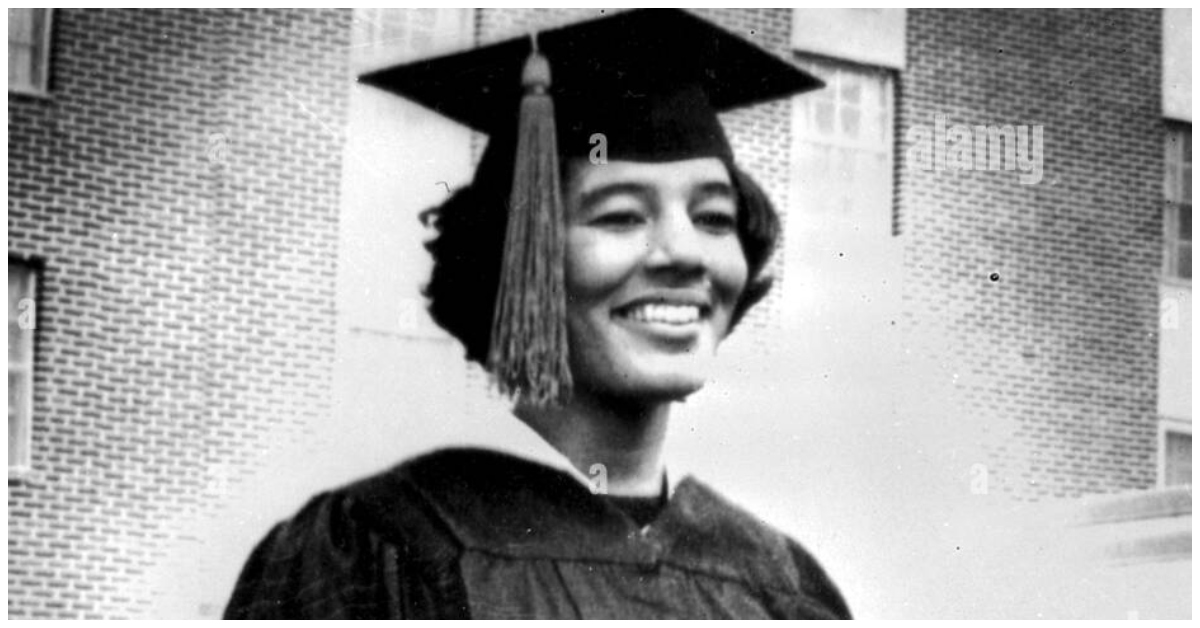Standing Firm Against Opposition to Enroll at The University of Alabama
On June 11, 1963, Vivian Malone stepped into history by registering for classes at The University of Alabama. She and James Hood defied Governor George Wallace’s efforts to block their enrollment, marking a pivotal moment in the fight for civil rights and desegregation in Alabama. The event captured national attention, with U.S. Deputy Attorney General Nicholas Katzenbach, federal marshals, and the Alabama National Guard enforcing federal orders for Malone and Hood to enter Foster Auditorium.
Governor Wallace, standing at the door to stop their entry, symbolized the state’s resistance to integration. However, under orders from President John F. Kennedy, federal forces ensured that Wallace stepped aside. Malone’s determination and poise that day inspired a nation grappling with racial injustice.
Achieving Milestones as the University’s First Black Graduate
Two years after her courageous enrollment, Vivian Malone made history again as the first Black graduate of The University of Alabama. On May 30, 1965, she earned her bachelor’s degree in commerce and business administration, paving the way for countless others.
Malone’s achievements extended far beyond her time as a student. In 2000, the university awarded her an honorary Doctor of Humane Letters, recognizing her immense contributions to civil rights and education. She returned as a commencement speaker, solidifying her legacy as a trailblazer for equality and opportunity.
A Lasting Legacy Honored by the University and Beyond
The University of Alabama commemorated Malone’s bravery and perseverance through multiple tributes. In 2013, the Malone-Hood Plaza was dedicated to honor her and James Hood. This space stands as a reminder of their courage in the face of immense adversity.
In addition, Malone’s name is featured in the UA Division of Student Life Hall of Fame, and she was inducted into the Alabama Women’s Hall of Fame in 2021. Her impact continues through initiatives like The Malone Awards, which celebrate alumni excellence and foster student success.
Vivian Malone’s Role in Shaping the Civil Rights Act
The events of June 11, 1963, directly influenced national civil rights legislation. President Kennedy addressed the nation that evening, calling civil rights a moral issue. Just a week later, he submitted a civil rights bill that became the foundation of the Civil Rights Act of 1964. Malone’s courage to walk through the doors of Foster Auditorium significantly contributed to this historic shift.
Her legacy extends beyond education and politics. Malone’s life exemplifies resilience, hope, and the power of one individual to inspire change.
Remembering Vivian Malone and Her Enduring Impact
Vivian Malone passed away on October 13, 2005, but her legacy endures. Her life’s work has left an indelible mark on civil rights, education, and equality in America. Through her bravery, she not only transformed The University of Alabama but also advanced the nation’s journey toward justice.





